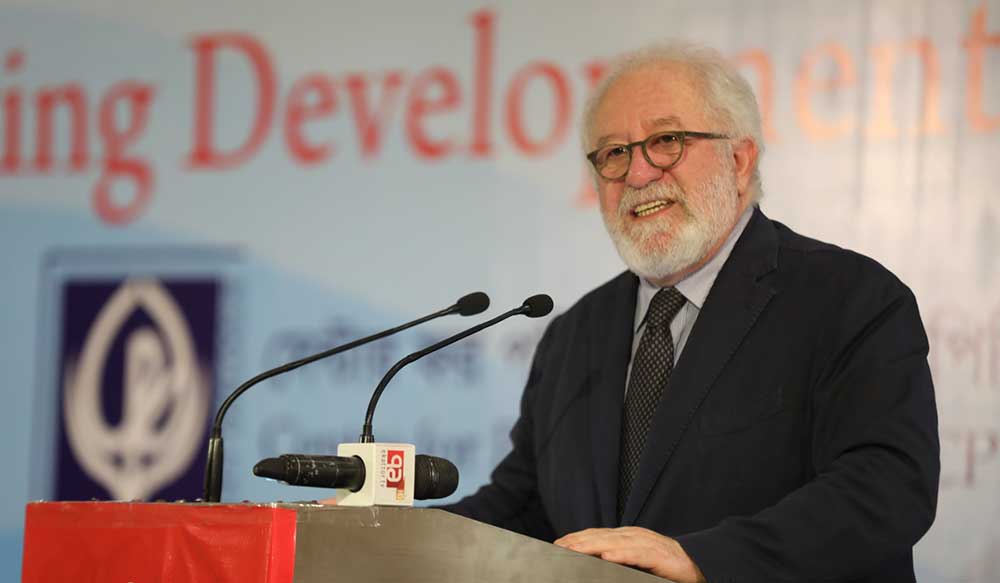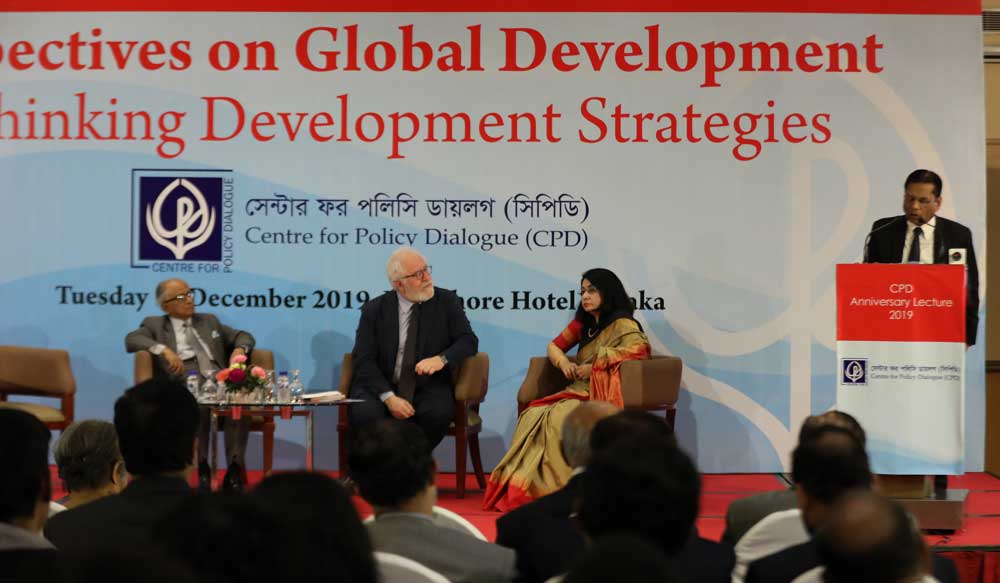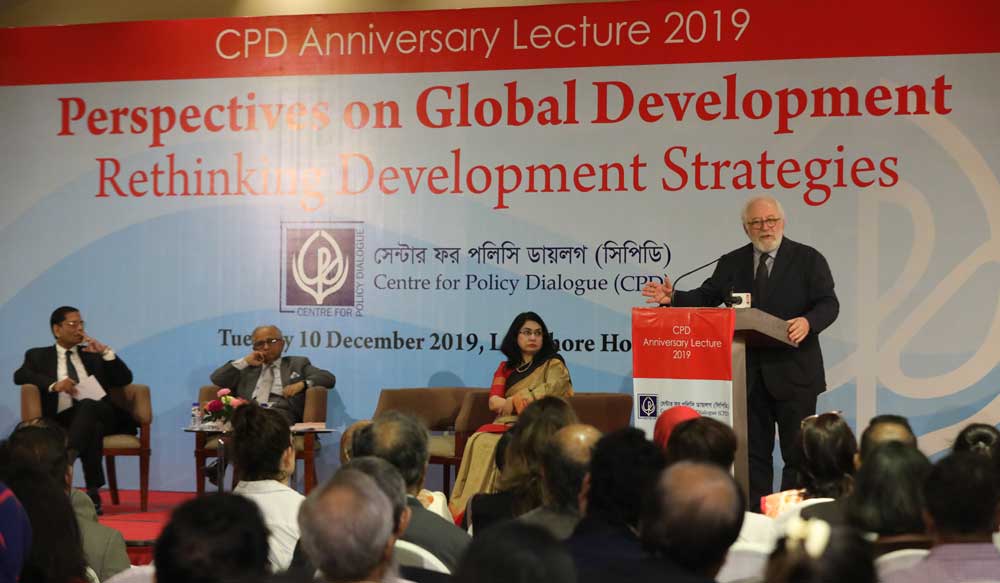
Does GDP growth translate into equitable development and wellbeing of citizens around the world? Does higher GDP growth lead to inclusive development? Or, is it one of the development traps acting as a barrier in achieving inclusive and sustainable growth? Governments should revisit their development policies and strategies to ensure that marginalised communities are not deprived of their rights and access to development. It will require to formulate an inclusive approach for sustainable development. Ensuring social protection, providing required public services, including education and health, and skills for labour force will be key factors to achieve such development.
https://www.facebook.com/cpd.org.bd/videos/1432042210294255/
These issues were raised by Dr Mario Pezzini, Director of the OECD Development Centre and Special Advisor to the Secretary-General on Development, while he was delivering CPD Anniversary Lecture 2019 on 10 December 2019 in Dhaka. The theme of this year’s lecture was “Perspectives on Global Development: Rethinking Development Strategies”.

Dr Pezzini also suggested to address the growing inequality which has become visible now in nearly all countries. The middle-class, particularly from developing and middle-income countries, remains highly vulnerable to this inequality trap. It is also one of the distinguishable reasons for several uprising and protests in these countries. In many cases, protests are waged against the system, rather than against a particular government or over any specific issue. It has been identified that there is a growing disconnect between governments’ perception of people’s well-being and the reality.
Dr Pezzini emphasised that ‘now’ is the time for the governments to improve their understanding and assessment of people’s perceptions and concerns; they also have to upgrade their policy responses to match this complex environment. In parallel, the formulation of global solutions can also respond to a number of increasingly shared challenges.

The event began with welcome remarks by Dr Fahmida Khatun, Executive Director, CPD. She mentioned that over the span of five years, CPD has maintained the tradition of hosting Anniversary Lectures each year, as part of its celebration of two decades long journey. Dr Khatun highlighted that as Dr Pezzini’s work emphasises on structural reform and developing nationally-driven development practices in combating social unrest, his views will be imperative for a better understanding of the mechanism of a more equitable approach to national development.
Professor Mustafizur Rahman, Distinguished Fellow, CPD, introduced Dr Pezzini to the audience and moderated the session. Chaired by Mr M Syeduzzaman, former Finance Minister, Government of Bangladesh, and Member, CPD Board of Trustees, the Anniversary Lecture ended after an interactive session with the audience that included development experts, researchers, members of the civil society organisations, students and representatives from media.


